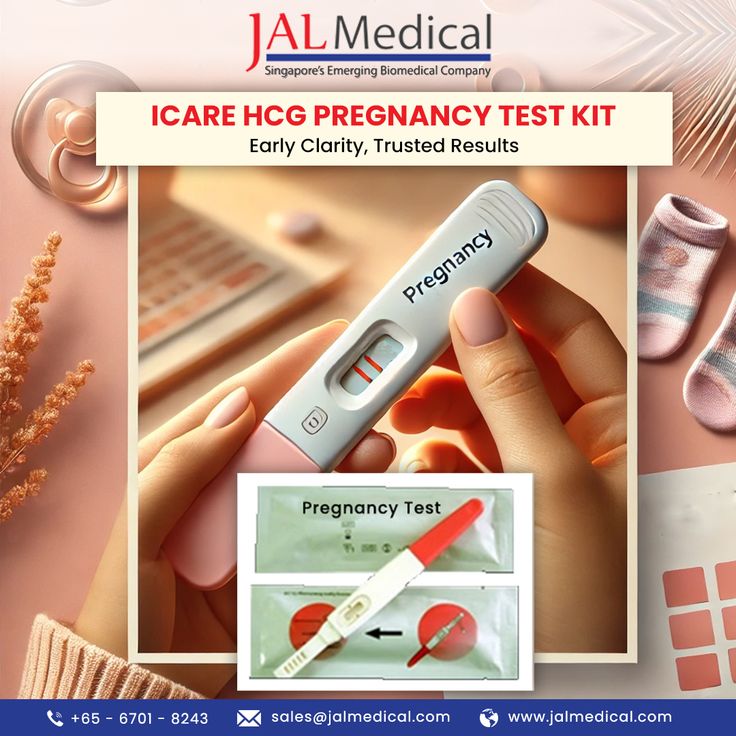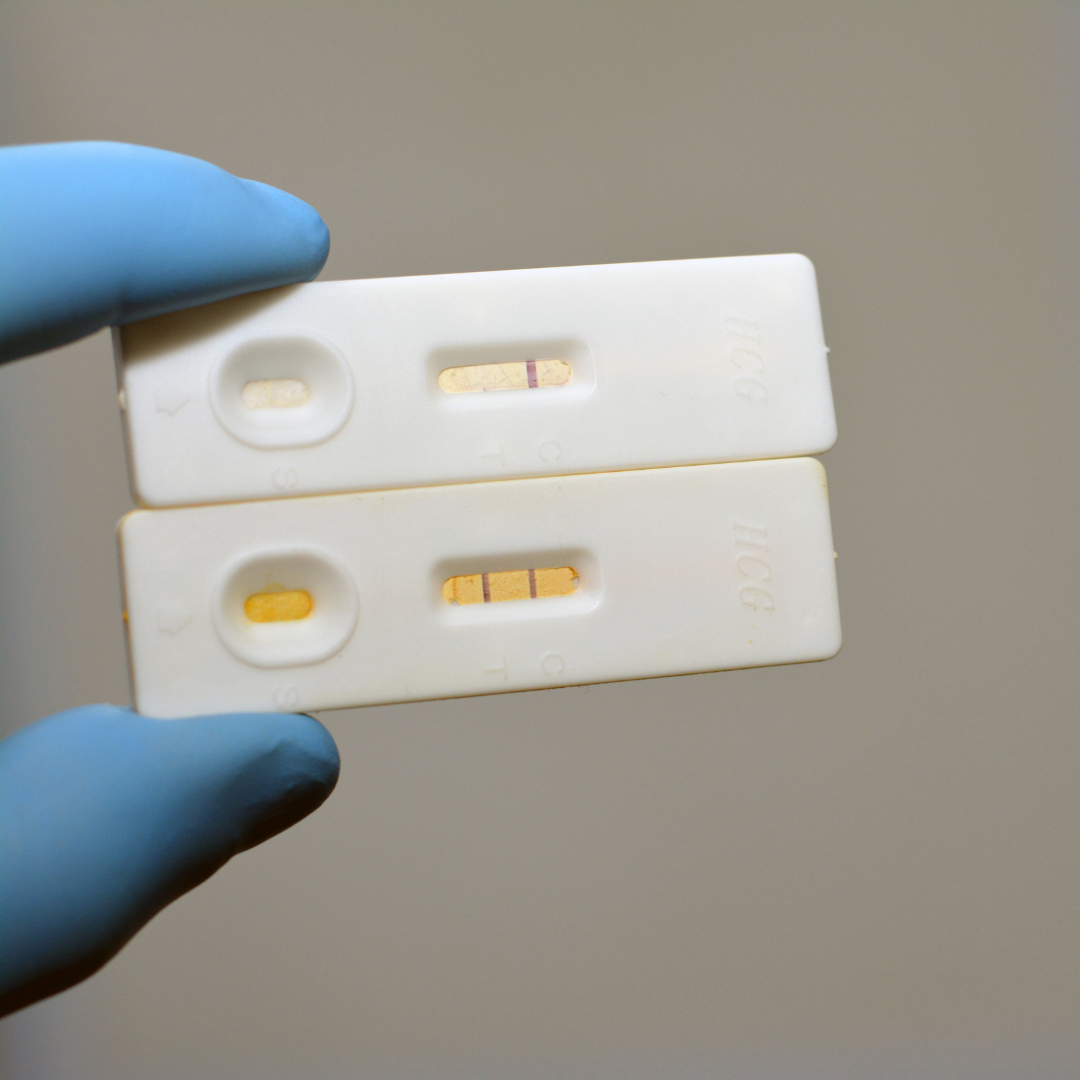Table of Contents
Objective
Explain why early pregnancy testing matters for women’s health in Afghanistan, using clear clinical reasoning and city-specific context. The article focuses on how timely identification can guide safer decisions, align care pathways and reduce uncertainty without listing product benefits or comparisons.
Introduction: Early Identification Shapes Safer Care
Early confirmation of pregnancy in Afghanistan sets the course for safer decisions, timely counseling and appropriate care. When a woman tests early, she can identify gestational status while symptoms are still nonspecific, which may limit delays in seeking antenatal visits, nutrition guidance and risk assessment. In contexts where travel, privacy and clinic capacity vary by region, early testing can reduce missed opportunities for care. Clear instructions, simple sampling steps and understandable results are essential because literacy levels and access differ across provinces. Moving from uncertainty to clarity may also prevent inappropriate medication exposure and helps align timing for ultrasound and follow-up laboratories. The sections below explore how early testing plays out – clinically and practically – across major Afghan cities.
Pregnancy Test in Kabul: Early Identification and Care Pathways
In Kabul, early use of a Pregnancy Test aligns clinical steps with local services. Women may confirm pregnancy before a missed period window ends, which can prompt scheduling of an antenatal consultation in large public hospitals or neighborhood clinics. Early confirmation can steer discussions about folate intake and screening timelines without waiting for overt symptoms. Because Kabul’s neighborhoods have varied pharmacy density, home testing may bridge gaps when appointments are scarce or delayed. Clear result interpretation (positive/negative lines) can reduce ambiguity and help a woman decide when to contact a provider. Kabul’s higher mobile phone usage also supports simple reminders for retesting if results are borderline or if cycle irregularity complicates timing. In practice, early identification in Kabul frequently means earlier documentation of last menstrual period, better estimation of gestational age and fewer missed windows for early ultrasound when indicated.

Pregnancy Test Kit in Herat: Access Points and Usage Patterns
In Herat, a Pregnancy Test Kit is commonly obtained from urban pharmacies and neighborhood health points, where staff may explain timing and sample handling. Women often test in the early morning, when urine concentration can increase diagnostic clarity. When cycles are irregular, Herat’s providers may recommend retesting after 48–72 hours, particularly if the first test is negative but symptoms persist. Early results can guide whether a woman schedules her first antenatal visit at district hospitals or private practices, which may reduce crowding by directing only confirmed cases to clinics. Because family privacy norms matter, at-home testing may be preferred. Clear, brief instructions allow users to avoid over-dipping or mistiming, which can otherwise produce invalid lines. Early testing in Herat therefore improves the sequence of care – test, confirm, then plan – without forcing women into repeat, unnecessary trips.
HCG Pregnancy Test in Mazar-i-Sharif: Timing and Interpretation Norms
For Mazar-i-Sharif, an hcg pregnancy test supports time-sensitive decisions when symptoms overlap with routine illness or stress-related cycle changes. Providers often counsel that testing a day or two after a missed period can minimize false negatives. If the test is negative but suspicion remains, retesting may occur after a short interval, since early hormone levels can be low. Women who work outside the home may seek quick clarity before arranging transport to clinics. In Mazar-i-Sharif, early detection helps align antenatal scheduling with available laboratory slots for baseline hemoglobin and infectious disease screening when recommended. Interpreting faint lines can be confusing; simple guidance – such as comparing the test line to the control line under good light – can reduce misreads. Early confirmation also supports documentation of cycle dates, which can improve downstream ultrasound correlation and avoid uncertain gestational estimates.
HCG Pregnancy Test Kit in Kandahar: Privacy and Home-Based Testing
In Kandahar, an HCG pregnancy test kit may serve women who prefer home testing for privacy. Early testing can reduce unnecessary clinic visits and allows families to plan follow-up discreetly. Clear labeling and straightforward steps – collect, test, wait – matter because reading errors may occur when instructions are dense. Many users test in the morning for more reliable detection; if negative and menses do not start, a retest after two or three days is a common path. Early awareness may influence when to begin routine antenatal check-ins and lab requests. In peri-urban districts, where travel time is significant, confirmation at home may prevent lost time for non-diagnostic visits. The focus remains timing and clarity: a well-timed test, read as directed, can align care without requiring multiple trips or confusing back-and-forth between pharmacies and clinics.
Best Pregnancy Test Kit in Jalalabad
In Jalalabad, the phrase Best Pregnancy Test Kit usually points to clarity of instructions, readable lines and reliable timing rather than features. Clinically, “best” may mean a test that pairs well with the user’s context – simple steps, predictable wait time and results that are easy to interpret. Early testing can reduce contradictory outcomes that sometimes occur when users test too soon or read results outside the specified window. Providers in Jalalabad may encourage women to test after the expected period date and to repeat if symptoms continue. Early confirmation gives structure to the care pathway – document last menstrual period, plan antenatal timing and consider early labs where indicated. In areas with busy clinics, this sequence can spare unnecessary congestion while directing those who truly need appointments to the right place and time.
Midstream Test Pregnancy in Kunduz: Sampling Practices and Reliability
In Kunduz, midstream test pregnancy approaches emphasize clean catch technique – start urinating, then place the strip or device in the stream to minimize contamination. Early testing can resolve uncertainty that otherwise leads to delayed antenatal booking. If an early test is faint or unclear, repeating the test after 48 hours may capture rising hormone levels. Pharmacists may remind users not to exceed the indicated dipping time and to read results within the recommended window to avoid evaporation lines. Because travel can be time-consuming, a clear home result supports smarter scheduling. When early testing shows a positive, women can coordinate lab work or ultrasound when resources are available. Using consistent timing after a missed period improves reliability, while simple, culturally sensitive instructions help families handle testing with confidence and discretion.
Pregnancy Midstream Test in Ghazni: Community Education and Myths

In Ghazni, a pregnancy midstream test is increasingly recognized as a straightforward method for early confirmation. Community health workers may address common myths – such as testing at any random time or over-soaking test pads – which can lead to unclear results. Early testing supports a timely conversation with a provider about next steps, including when to schedule the first antenatal encounter. When families worry about privacy, clear written or pictorial instructions can guide correct use at home. If cycles are irregular due to stress or nutrition changes, women may test more than once. Early clarity helps avoid unnecessary medications during uncertain periods. By keeping instructions practical – collect correctly, time accurately, read promptly – Ghazni users can move from uncertainty to a defined plan without focusing on advanced features or unrelated comparisons.
HCG Pregnancy Kit in Lashkar Gah (Helmand): Integration with Maternal Care
In Lashkar Gah, an hcg pregnancy kit can tie early testing to maternal care visits. When a woman confirms pregnancy at home, she may register earlier for counseling on diet, rest and scheduling of essential labs. Health workers often encourage testing after a missed period to limit indeterminate results. If the first test is negative but symptoms persist, repeating it after a short interval can clarify. Early confirmation also means the clinic can time ultrasound referrals, which may improve gestational dating when equipment access is limited. Because travel in Helmand can be difficult, a home result can be the trigger for planned, efficient clinic use rather than repeated, uncertain visits. Clear, brief instructions – read under good light, verify control line, note exact timing – remain core to reliable outcomes.
Rapid Pregnancy Detection Kit in Bamyan: Speed and Follow-Up
In Bamyan, a rapid pregnancy detection kit is valued for its prompt result, which can shape same-day decisions about contacting a clinic. Early testing reduces the period of uncertainty, especially where long journeys may be needed for care. If the initial result is unclear, a second test after a day or two may provide stronger signal strength. Users are advised to follow the waiting time precisely; reading too early or too late can distort interpretation. Early confirmation helps align the first antenatal visit with times when providers are available, avoiding peak crowding. Because Bamyan’s terrain can complicate travel, testing at home before setting an appointment may save time and allows families to prepare documents, contact numbers and plans for follow-up investigations if recommended.
HCG Pregnancy Rapid Test in Khost: Referral Triggers and Safety
In Khost, an HCG Pregnancy Rapid Test can serve as the first trigger for clinical referral. Early positive results may prompt checking for warning symptoms such as pain or excessive bleeding, which require urgent evaluation. Providers often advise early testing after a missed period and retesting if symptoms persist with a negative result. A confirmed early pregnancy allows structured counseling – what to monitor, when to seek help and how to plan the first clinic visit. Because some women in Khost travel across district lines for care, early confirmation helps schedule a single, purposeful visit rather than multiple exploratory trips. Clear control lines and readable instructions minimize misinterpretation. The emphasis remains practical: confirm early, note dates and align with safe, timely referrals when needed.
Advanced Pregnancy Test Kit in Farah: Instruction Clarity and Literacy
In Farah, an Advanced Pregnancy Test Kit is useful only if instructions are easy to follow. Pictograms and short sentences can help users who prefer visual guidance. Early testing may identify pregnancy before symptoms intensify, allowing more predictable planning for clinic appointments. If the result is faint, repeating the test after 48–72 hours can clarify. Women are encouraged to test with the first morning urine for higher analyte concentration, though testing later in the day may still work if directions are followed carefully. Because Farah’s distances can be long, early clarity supports efficient travel planning. Emphasis is on correctness of steps – duration of sampling, placement on a flat surface and reading within the specified window – rather than on features that do not change the clinical pathway.
Pregnancy Test Kit Manufacturer: Standardization and User Safety in Context
In the Afghan context, a Pregnancy Test Kit manufacturer perspective centers on standardization – clear control lines, consistent sensitivity and stable packaging that withstands transport. For public health outcomes, reliable labeling in clear language and pictorial guides can improve correct use. Manufacturers may include guidance about retesting intervals, morning sampling and what to do after a positive or negative result. In areas with variable temperatures, durable packaging can protect test integrity until use. While procurement channels differ by city, users across Afghanistan benefit when instructions are simple, timing is explicit and interpretation is unambiguous. The practical end point remains the same everywhere: an early, reliable result that directs women toward timely, appropriate care without unnecessary delays.
Conclusion:
Across Kabul, Herat, Mazar-i-Sharif, Kandahar, Jalalabad, Kunduz, Ghazni, Lashkar Gah, Bamyan, Khost and Farah, early pregnancy testing works as a practical first step that shapes safer, timelier care. Early confirmation can reduce ambiguity, align antenatal scheduling and help families plan travel and follow-up without crowding clinics. Clear instructions, correct timing and simple interpretation are the core elements that keep testing reliable in settings with diverse literacy levels and infrastructure. Whether a woman uses a strip or a midstream device at home, the clinical logic is consistent: confirm early, document dates and coordinate the next steps with local providers. By emphasizing timing and clarity over features, Afghanistan’s communities can use early testing to create predictable, safe pathways from the first line on a strip to appropriate, timely care.








